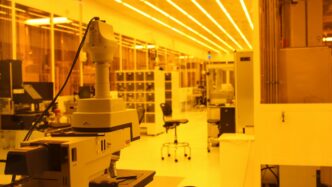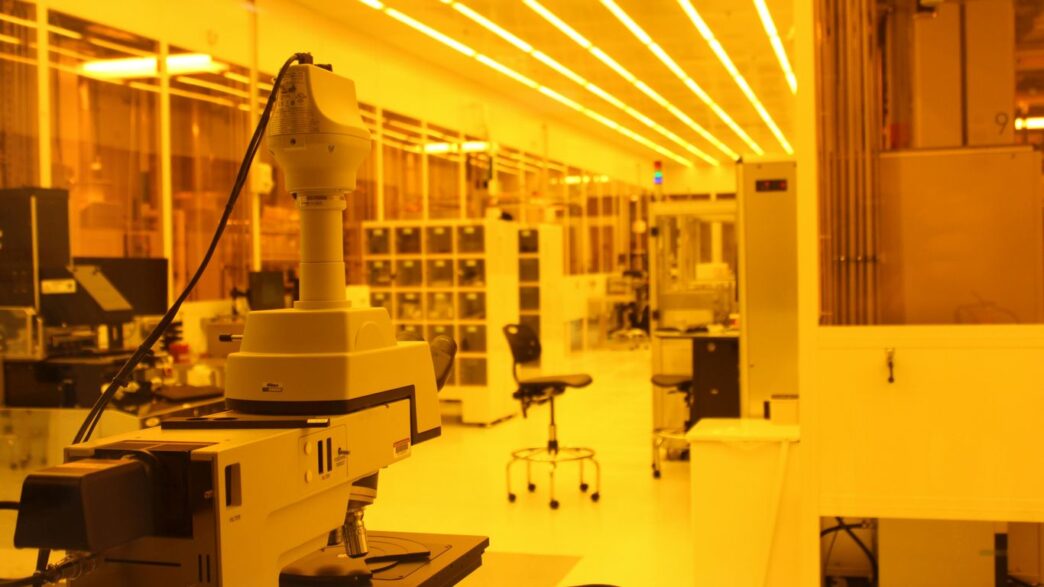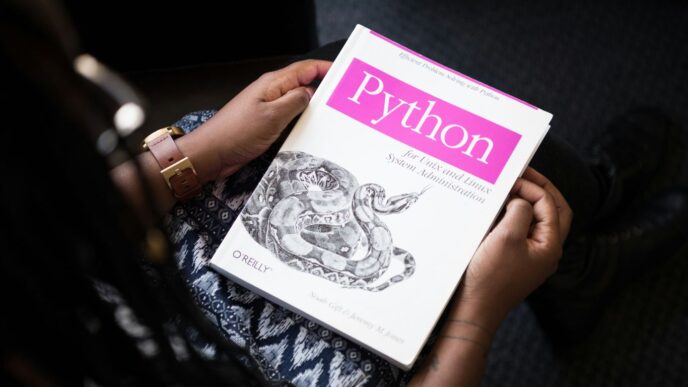1. Massachusetts Institute of Technology
Massachusetts Institute of Technology, or MIT as most people call it, stands out when it comes to quantum physics research in the US. The place is famous for driving some of the biggest discoveries in quantum computing, quantum communication, and sensing. If you’re into the nuts and bolts of how the tiniest particles in the universe behave, MIT is hard to beat.
Just to put things into perspective, here’s a quick look at the numbers:
| Student Population | Number of Quantum Papers Published (Annual) | Student-to-Research Paper Ratio |
|---|---|---|
| 11,520 | 1,200 | 9.6 |
What makes MIT’s quantum programs really worth talking about?
- Heavyweight research centers: The MIT Center for Quantum Engineering and the Research Laboratory of Electronics give students a chance to work side-by-side with experts in both theory and experiment.
- Real-world impact: Folks from MIT’s Lincoln Laboratory cracked the code for a special kind of quantum computing using superconducting qubits. This isn’t just classroom stuff; it actually shifts what’s possible with computers.
- Top-notch teamwork: MIT’s Quantum Information Science group taps into partnerships with government and industry, so you’re not stuck in a bubble—your work might lead to the next leap in technology.
MIT’s environment is competitive: expect tough classes and loads of hands-on research. You don’t just sit through lectures; you are encouraged to get in the lab early and start asking your own questions. Sometimes it’s overwhelming, but it’s hard to find another place where you can roll up your sleeves and do the same kind of groundbreaking work.
2. California Institute of Technology
Caltech, tucked away in Pasadena, stands out for quantum physics. You’d expect nothing less—it’s Caltech, after all—but even among the best, their work really makes waves. At the heart of their quantum research is the Institute for Quantum Information and Matter (IQIM), which brings together theorists and experimentalists working on everything from quantum computation to quantum simulation.
A few things make Caltech especially attractive for those passionate about quantum:
- The upcoming Dr. Allen and Charlotte Ginsburg Center for Quantum Precision Measurement (opening in 2025) is bringing a bunch of quantum research fields together under one roof.
- Caltech partners with tech giants like Amazon Web Services, which gives students and researchers chances to connect academic work with industry projects—pretty rare.
- You get to learn directly from leading scientists who are literally writing the textbooks and breakthrough papers.
Here’s a quick look at some numbers:
| Category | Number |
|---|---|
| Student Population | ~2,233 |
| Quantum Research Papers | ~850 |
| Students per Quantum Paper | 2.63 |
Compared to much larger universities, this ratio is wild—Caltech may be small, but nearly everyone you meet is involved in advanced research. The community is tight-knit, opportunities for hands-on lab work abound, and you’ll find both undergrad and grad students contributing to projects that end up published in big journals. If you want to get into top-tier quantum physics, and be at the cutting edge (sometimes literally building the equipment you’ll use), Caltech is a fantastic pick.
3. Stanford University
Stanford University has carved out a spot in quantum physics circles for good reason, and it’s not just because they have more acronyms than you can shake a stick at (seriously, Q-FARM cracks me up every time). The school brings together its best minds from physics, engineering, and computer science, which turns the place into something like a quantum research think tank. If you’re looking to work on quantum information theory or practical quantum computing, Stanford is hard to beat.
Here’s what really stands out about Stanford’s quantum scene:
- Big-time research centers: The Stanford Institute for Theoretical Physics and Ginzton Laboratory are always buzzing with new projects in quantum optics, condensed matter, and more.
- Interdisciplinary problem-solving: Collaboration across faculties isn’t just for show—it’s how students and staff make practical breakthroughs, especially in areas like error correction and advanced quantum control.
- A strong student and faculty network: There’s a lot of academic firepower to tap into, whether you’re interested in joining the Stanford Quantum Computing Association or talking shop at one of their quantum seminars.
Check out this quick look at the numbers, just to paint a clearer picture:
| Student Population | Number of Quantum Papers (Yearly) | Student-to-Paper Ratio |
|---|---|---|
| 15,878 | 1,150 | 13.8 |
When you stack all that up, Stanford isn’t just keeping pace in the quantum race—they’re driving innovation pretty seriously. And with labs that always seem to have something new on the horizon, it feels like there’s always a fresh project or discovery brewing around every corner.
4. Harvard University
Harvard University consistently sits at the top when it comes to quantum physics in the US, and for good reason. The Harvard Quantum Initiative is right at the center of a lot of new discoveries, especially in areas like quantum many-body systems, quantum materials, and quantum information. Their researchers have developed programmable quantum systems and are pushing forward with new ideas in quantum algorithms. That’s not even mentioning their major collaborations—Harvard teams up with MIT and others through the Center for Ultracold Atoms, which helps spark innovation you don’t see everywhere else.
If you’re wondering about the numbers, here’s a quick breakdown:
| Student Population | Quantum Physics-Related Papers | Papers per 1,000 Students |
|---|---|---|
| 21,000 | 1,100 | 52 |
A few features that really set Harvard’s quantum physics scene apart:
- Flexible program options, both in theoretical and experimental physics.
- Intense competition for admission, so expect high academic standards.
- Close collaborations with top academic powerhouses and tech leaders, making Harvard a hub in a global network—reflecting how the US is a major force in new technology and innovation (global technology boom).
For students eager to get into quantum physics research, Harvard offers a balance of tradition and cutting-edge work, with plenty of chances to get hands-on experience. Graduates head off into top labs or companies, so this is the place if you love physics and want to see where the field is going by 2025.
5. University of California, Berkeley
There’s a reason folks in the quantum physics world always mention UC Berkeley. It’s one of the top places for quantum research in the country, and you really see it in how fast they’re growing their research centers and labs. They’ve got the Quantum Information and Computation Center, and their teams are active in every part of quantum tech: algorithms, cryptography, and, probably most notably right now, making new hardware. That mix of physics, computer science, and engineering keeps things interesting—you run into people working on everything from new types of quantum chips to safer ways to send information.
Berkeley’s faculty and researchers have racked up quite a number of peer-reviewed articles. Here are some quick numbers:
| Student Population | Number of Papers | Students per Paper Ratio |
|---|---|---|
| 42,327 | 1,500 | 28.22 |
It’s not just the research output—it’s about the kinds of problems they’re trying to solve. Some highlights:
- Developing quantum processors through industry partnerships
- Leading projects on quantum algorithms that could change how computers solve really hard problems
- Making big strides in hardware, like zero-index materials for super-fast light-based chips (photonic devices advance)
Every year, Berkeley seems to attract more international collaboration and fresh funding. You’re as likely to run into grad students from other continents as you are to see a Nobel-winning physicist in the hallway. If you want a place where you can work on tough quantum puzzles with smart, curious people, UC Berkeley should definitely be on your radar.
6. University of Chicago
The University of Chicago is a big name in quantum physics, and it’s well earned. With a history that includes legends like Enrico Fermi and Subrahmanyan Chandrasekhar, Chicago has shaped the direction of quantum science in the US and beyond. These days, folks like David Awschalom bring real energy to the department, making it one of the most exciting places to be for anyone interested in quantum research.
A few things set Chicago apart:
- The Pritzker School of Molecular Engineering, which puts a strong focus on modern quantum problems
- The Chicago Quantum Exchange, uniting massive local and national resources
- Long-standing partnerships with Argonne National Lab and Fermilab, which really open up opportunities for hands-on, collaborative research
If you walk the halls, you’ll hear about projects in quantum computing, networking, communication, and new materials. Interdisciplinary work isn’t just a buzzword here; it’s the way things get done—physics, engineering, and computing blend on almost every project.
Here’s a snapshot:
| Metric | Value |
|---|---|
| Student Population | 17,000 |
| Research Papers (2024) | 800 |
| Student-to-Paper Ratio | 21.25 |
Graduates don’t just leave with a degree; they pick up serious experience working alongside national labs and global pioneers. Whether your goal is quantum algorithms, scalable systems, or error correction, Chicago gives you the tools and community you’ll need. The whole city is pushing to be a true quantum hub, and the university is leading that charge.
7. Purdue University

Purdue University is a top destination if you’re into quantum physics, even if it seems a bit off the usual radar compared to the old-school Ivy names. It’s known for real-world breakthroughs in quantum materials and next-generation computing, not just theories on a chalkboard. Purdue’s Quantum Science and Engineering Institute and the Birck Nanotechnology Center attract both big names and big funding, giving students plenty of hands-on experience.
Here’s what makes Purdue stand out in the quantum physics scene:
- Leading professors like Michael Manfra work at the frontlines of quantum computing and advanced quantum devices.
- They collaborate with IBM, Microsoft, and major government organizations, which pulls plenty of resources and real projects into the classroom.
- Research focus isn’t just narrow—projects cover quantum communication, quantum error correction, quantum dots, and even quantum sensing.
If numbers help you compare:
| Metric | Student Population | Research Papers (Quantum) |
|---|---|---|
| 2025 Estimate | 50,000 | 600+ |
For students hunting for research jobs, working in labs, or rolling up their sleeves on industry-backed projects, Purdue’s the sort of place where your work moves forward fast and you’re around people who get things done. Not as flashy as the coasts, sure, but that’s sort of the point—you end up deep in good science, not lost in the crowd.
8. Yale University
Yale’s physics department is pretty serious about quantum research. What really sets them apart is the way they mix experimental and theoretical work. Faculty at Yale have been known to pioneer studies in superconducting qubits, which are a central building block for quantum computers. The university’s Wright Laboratory and Yale Quantum Institute draw students and scientists looking to tackle core questions in quantum mechanics, matter, and information. You get the sense that people aren’t just following trends—they’re often starting them.
If you’re curious about how Yale stacks up, here’s a quick look at some of their strengths:
- Lots of hands-on work in cutting-edge labs—students aren’t shy about designing their own experiments, even in undergrad.
- Semester-long collaborations with other institutions, like IBM and Brookhaven National Lab, help turn theory into something you can actually see or build.
- Funding tends to be better-than-average, with support for grad students and postdocs, plus opportunities for undergrads to join real research teams.
Here’s a look at a few numbers about the program:
| Metric | Value |
|---|---|
| Student Population | ~12,000 |
| Annual Quantum Papers | ~600 |
| Faculty-to-Student Ratio | 1:6 |
Yale’s size means you get decent access to professors—they’ll remember your name, for the most part. The general mood? Competitive, but not cutthroat, and the people you meet are genuinely curious about quantum stuff. If you want a place where you can try new things and maybe shake up what quantum research looks like, Yale should be high on your list.
9. Princeton University

Princeton University has a long history with quantum physics, and it shows. The school’s physics department is packed with driven researchers working on things like quantum information, condensed matter, and quantum computing. There’s no shortage of activity in these areas—the Princeton Quantum Initiative is just one hub where undergrads, grads, and postdocs rub shoulders with faculty on new problems."
Some reasons Princeton stands out:
- Strong focus on both theoretical and experimental quantum research, giving students different ways to get their hands dirty.
- Community atmosphere: lots of collaboration both within Princeton and with other leaders in the field, like IBM and research labs nearby.
- Courses that mix quantum mechanics, quantum computing, and specialized topics like quantum error correction.
Here’s a quick look at some numbers:
| Student Population | Quantum Physics Faculty | Quantum Research Papers (2024) |
|---|---|---|
| About 8,500 | Over 15 | 350+ |
Princeton is the kind of place that pushes you to ask hard questions and actually look for answers, not just in textbooks but by joining research groups early. The campus is tight-knit and the vibe is intense, but if you’re into quantum physics, you won’t be bored. Opportunities to attend seminars, interact with visiting scientists, and maybe even grab a summer internship at a national lab are just regular parts of Princeton’s scene.
10. University of Maryland
When people talk about quantum research in the US, the University of Maryland always comes up. It’s one of those places where the progress happening behind lab doors is really moving the needle for quantum physics. If you’re considering Maryland for quantum physics, here’s what stands out:
- The Joint Quantum Institute (JQI) at Maryland is pretty famous for its partnerships with the National Institute of Standards and Technology (NIST) and puts out steady, high-impact research on quantum computing and quantum simulation.
- There’s also the Quantum Technology Center, which means students have regular access to the latest tools, collaboration spaces, and real science being put into practice.
- Faculty here aren’t just professors—they’re super involved with industry and government efforts, so grad students often find themselves working on practical problems, not just textbook questions.
To get an idea of the scale, here’s a snapshot of their recent output:
| Metric | 2024 Number |
|---|---|
| Quantum Physics Papers | 520 |
| Active Faculty | 37 |
| Research Labs | 13 |
| Major Collaborations | 6 |
Graduates from Maryland’s quantum programs end up in all sorts of roles—some in big tech, some running their own startups, others sticking around academia. The vibe here is pretty cooperative; you’ll find lots of brainpower coming together over even the smallest breakthroughs. If you like the idea of being at a place that mixes world-class science, expert mentorship, and an eye on real impact, Maryland’s worth checking out.
Conclusion
So, that’s the rundown on some of the top places in the US to study quantum physics in 2025. Picking a college for something as specialized as quantum research isn’t easy—there are a lot of factors to think about, from research output to how many students are actually involved in the work. Every school on this list has its own strengths, whether it’s a big name like MIT or a smaller place that’s making waves in the field. The truth is, quantum research is growing fast, and more universities are getting involved every year. If you’re serious about this path, it’s worth digging into each program, checking out the labs, and maybe even reaching out to current students or professors. No matter where you end up, you’ll be part of a field that’s changing how we think about technology and the universe. Good luck on your journey—it’s an exciting time to get started.














